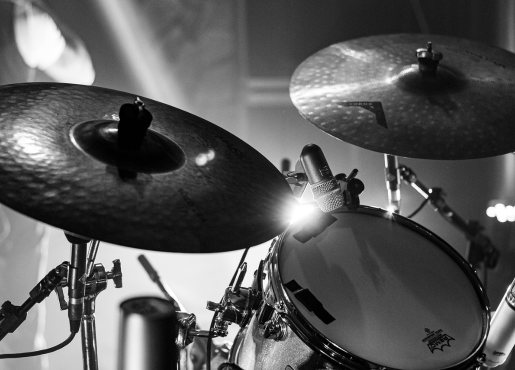
JOHNATHAN BLAKE’s PENTAD with Steve Wilson, Joel Ross, David Virelles, and Dezron Douglas SMOKE JAZZ CLUB
By Kim Kleinman
Even before the seasons of streams, Johnathan Blake made a huge impression on me as Kenny Barron’s magician on drums (and cymbals, as he is quick to add). He sits high behind his kit and keeps the cymbals low and flat so that he can reach them with the same motion as he uses with the drums. He is a force, a graceful dynamo. Sure, there’s power but he is extremely deft and subtle.

The announcement of this gig, which coincided with word of the release of the band’s new album and my hearing two cuts on Jazz Spectrum two weeks ago, made this a can’t-miss. Watching by remote connection with Fritz, my most long-term friend, was a further treat.
The music was an even bigger treat.
The album, Passage, features the exciting young alto saxophonist Immanuel Wilkins, who was at Smoke Jazz Club on Thursday, Friday, and Sunday night. But for our set, it was Steve Wilson on alto. I was momentarily disappointed until I recalled that Wilson was recruited by Bill Charlap for the finale of his Jazz in July series at 92NY. There, Charlap said that “no one sang with his horn like Steve Wilson,” and that was true on his showcases on standards from Gershwin and Mandel, but also on a blues. Wilson did indeed sing but he didn’t invoke either Charlie Parker or Lee Konitz in the familiar ways.
Saturday night with Pentad, Wilson sang, but the tunes, originals from the album -- he was particularly sinuous on the “Groundhog Day” closer -- and even Wayne Shorter’s “Oriental Folk Song,” had infectious grooves, as one might expect from a rhythm section of Blake and Dezron Douglas. Joel Ross brought his vibraphone to both the gig and the album. His two-mallet, light vibrato tending toward Milt Jackson’s settings meshed well with the tunes, Wilson, and the rest of the band. But the most pleasant surprise was David Virelles. On previous gigs, I have found him full of ideas, perhaps too many, to the point that he got in his own way, particularly rhythmically. Under the insistent influence of Blake and Douglas, he couldn’t help but swing. But I think it was more than acquiescence, as he was fluid and inventive.
Still, it came down to Douglas and Blake as they locked in, pushing the beat around and opening up many possibilities for their fellows. All but the Shorter tune were from the album, which includes a cover of Ralph Peterson, Jr’s “The Tears I Cannot Hide.” Douglas opened the performance of his composition, “A Slight Taste,”, with a rich, woody solo before the band hit a powerful groove that allowed Wilson and Virelles to hit stabbing lines, and the tune dissolved into Blake’s most extended showcase, neither trading fours nor a solo as such, but a rhythmic exploration of the groove, which the band maintained behind him. Blake composed the set’s opener, Muna and Johna’s Playtime,” and the closer, “Groundhog Day.”
Blake was justly a big presence throughout, but he took less solo space than he would have as a sideman. It didn’t matter, as he had his whole band to play, which was really his instrument.
- Home
- Schedules
- TV
- TV
- Local TV Programs
- Business | Life 360 with Kristi K.
- Toledo Stories
- To The Point with Doni Miller
- Listening with Keith Burris
- Ideas & Insights
- WGTE Presents
- BL360: Northwest Ohio Innovation Consortium
- Magic of the Old West End
- Freedom Means Never Surrender
- I&I: The Random Factor
- FF: National Cherry Festival
- TTP: Moms Demand Action For Gun Sense in America
- Watch Live
- Radio
- Education
- Community
- Support
- About
- Donate
- Watch Live



